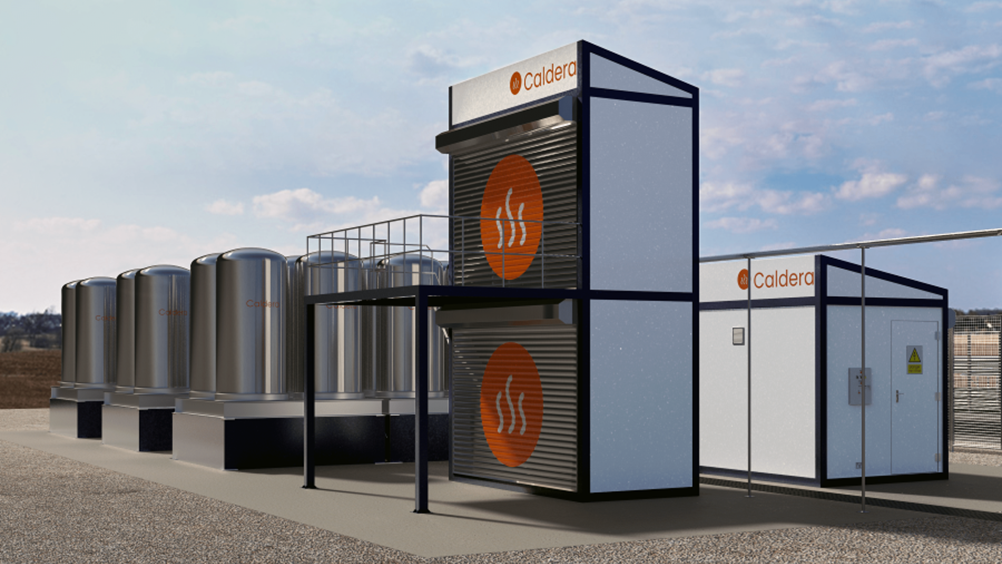

Caldera, an energy firm, has been awarded £4.3 million as part of the UK Government's Industrial Fuel Switching Competition to build demonstrator industrial-scale heat cells made from volcanic rock and scrap aluminium in Southampton, UK. These cells aim to store renewable energy to provide industrial heat on demand.

The technology involves an array of heat cells that house a solid core encased in vacuum insulation, ranging in temperature from 200-5000C. Caldera is working with the Manufacturing Technology Centre to enable scaled production. The exact manufacturing process is confidential; however, recycled aluminium is melted and set over volcanic rock.
Caldera uses steam for thermal energy extraction, while some alternative thermal energy storage technologies use hot air. The vacuum insulation system used by Caldera achieves vacuum performance affordably, which is usually only possible at a very high cost. A feasibility study estimates that Caldera's Storage Boiler can produce 180°C/10bar steam, making them suitable to replace 8% of global fuel-induced industrial heat demand.
When compared with conventional thermal storage solutions, Chief Commercial Officer at Caldera, Daniel Kirk, confirmed that Caldera's "energy storage material…balances cost, conductivity and the ability to cope with thermal stresses."
He also illustrated: "Conductivity in particular is important because it allows energy to be quickly put into and removed from the store. Solid aluminium has high Conductivity but is expensive. Replacing most of the aluminium with rock reduces the cost significantly, yet the Conductivity remains high as there is still a contiguous path for heat to travel through the aluminium."
This thermal material 'took years of research from our thermodynamics experts and test engineers, building test rigs and trying different combinations of materials until we got it just right', asserted Kirk.
The manufacturing processes will also be researched and optimised to minimise costs of production, installation, running and maintenance, with the aim of demonstrating how to switch industry to low-carbon fuels at an affordable price. Even with only a 5% share of the market, Caldera estimates global carbon savings of 197MtCO₂e by 2050. Although energy density compares 'excellently' to most other options, fossil fuels remain denser.
Caldera plans to offer complete systems, including solar panels and energy storage, to provide 24/7 process heat from solar. The first version iteration, as a demonstrator, will heat a 15,000L hot water tank to prove it works well. It is based around heat cells that each store 100kWh of energy. Subsequent versions will use the next generation 200kWh heat cells and provide steam on demand. It's about proving the technology works at the scale industrial customers need. If you wish to learn more about the aluminium recycling sector, please spare a glance at AL Circle's specially curated report, World Recycled Aluminium Market Analysis.
Responses








